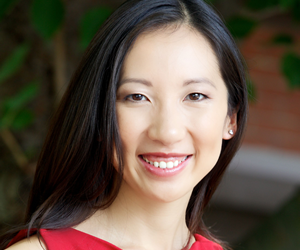
Stepping Into the Medical Field and Out of Your Comfort Zone
Are you ready to become a doctor? Making the transition from undergraduate to medical school ... Read more
Written by: Marissa Sutera
Published on: February 20, 2015

Are you ready to become a doctor? Making the transition from undergraduate to medical school ... Read more
Written by: Marissa Sutera
Published on: February 20, 2015

Well Baby visits can be stressful for both physicians and the new parents – not ... Read more
Written by: Brian Wu
Published on: February 16, 2015

When did you know you wanted to be a doctor? the pre-med asked. Maybe it should ... Read more
Written by: Megan Riddle
Published on: February 13, 2015

I remember being a third year medical student and reading Bob Wachter’s piece in the New ... Read more
Written by: Vineet Arora
Published on: February 6, 2015

Republished with permission from here. “What can you do here that we can’t do at home?” ... Read more
Written by: Kevin Dueck
Published on: January 28, 2015

Dr. Leana Wen was on a roll. The Washington University medical student was president of ... Read more
Written by: Suzanne Barston
Published on: January 21, 2015

In 2013, roughly half of all medical school applicants did not receive an acceptance letter. ... Read more
Written by: Anubodh “Sunny” Varshney
Published on: January 14, 2015

Despite being the current President of the American College of Physicians (ACP), David A. Fleming, ... Read more
Written by: Suzanne Barston
Published on: December 22, 2014

Republished with permission from here. Congratulations! You’ve made it to the clinical portion of medical ... Read more
Written by: Rishi Kumar
Published on: December 17, 2014

Neuromodulation is an exciting therapy for improving neurological ailments. When I graduated medical school in ... Read more
Written by: Shannon Hann
Published on: December 12, 2014

Pre-medical students can – and should – take advantage of the many opportunities available to ... Read more
Written by: Anubodh “Sunny” Varshney
Published on: December 10, 2014

I am a young hospitalist who is 16 months into my role at an urban ... Read more
Written by: Joshua Allen-Dicker
Published on: December 8, 2014

On Thanksgiving, while many my friends and family gather around the table with roasted turkey ... Read more
Written by: Megan Riddle
Published on: November 27, 2014

“Go forth and do great things.” – Anonymous No one gets into medical school without ... Read more
Written by: Megan Riddle
Published on: November 24, 2014

“Knowing yourself is the beginning of all wisdom.” – Aristotle Even at the time, I ... Read more
Written by: Megan Riddle
Published on: November 17, 2014

As a first-year medical student only a few weeks into gross anatomy, I still have ... Read more
Written by: Brent Schnipke
Published on: November 10, 2014

A look at some possible origins of the myth In light of today’s holiday, I thought ... Read more
Written by: Brent Schnipke
Published on: October 31, 2014

Dr. Judy Melinek is a board-certified forensic pathologist in San Francisco, CEO of PathologyExpert Inc., ... Read more
Written by: Juliet Farmer
Published on: October 22, 2014

Choosing a field of medicine is likely the most important decision a medical student will ... Read more
Written by: Mimi Knoll
Published on: October 13, 2014